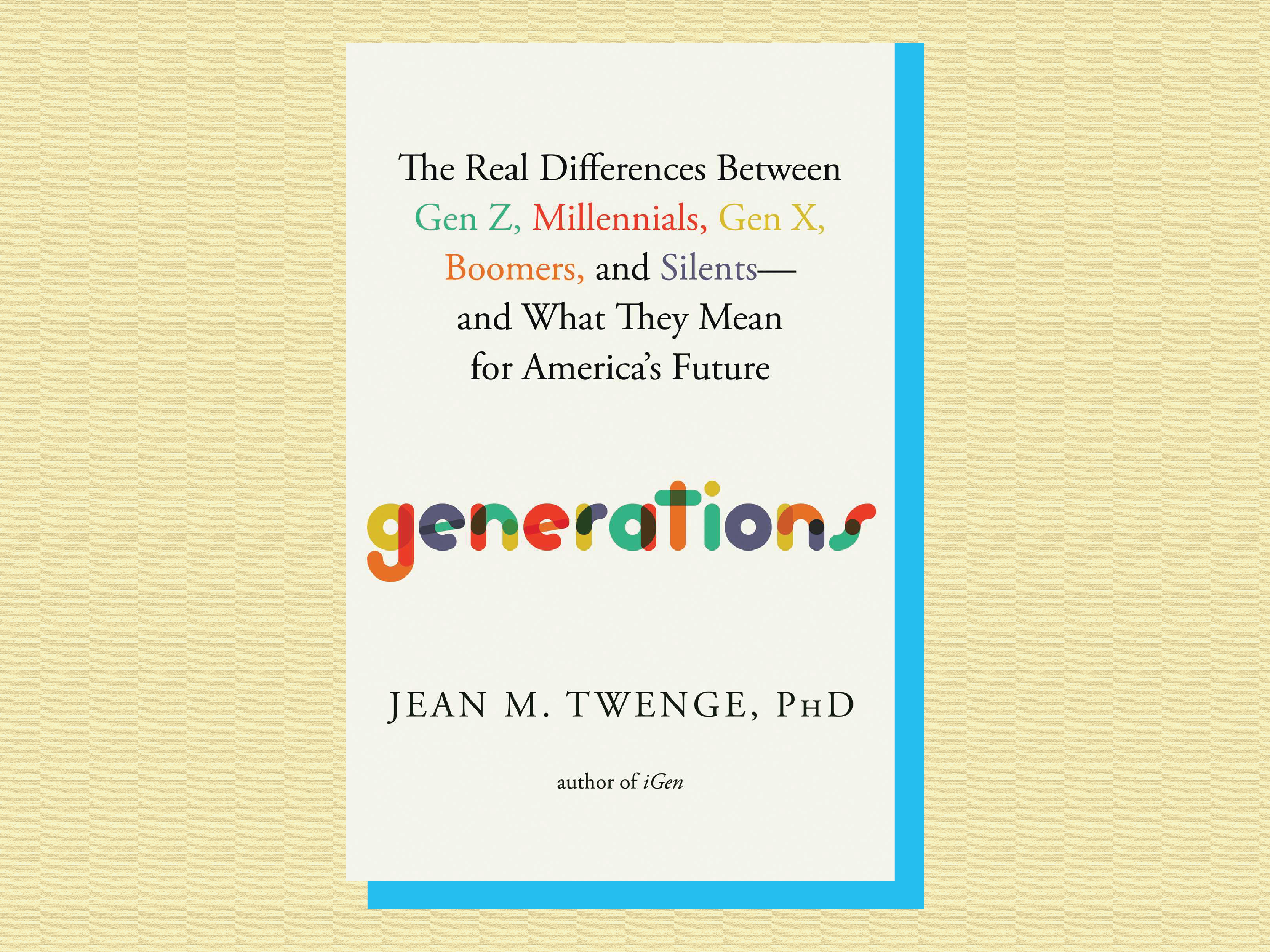Over the past decade or so, many have accepted the idea that unlike previous generations of Americans, millennials are worse off than those who came before them. But how true is that?
Jean Twenge is a psychology professor at San Diego State University and she’s got a new book coming out called “Generations: The Real Differences between Gen Z, Millennials, Gen X, Boomers and Silents – and What They Mean for America’s Future.”
She joined Texas Standard to talk about the “myth of the broke millennial,” generational divides, and how concerned parents should be about Gen Z. Listen to the story above or read the transcript below.
This transcript has been edited lightly for clarity:
Texas Standard: I want to begin with one of the ideas you address in your book called “the myth of the broke millennial.” Why is the idea that millennials are broke a myth?
Jean Twenge: So there is this very pervasive narrative that millennials are the first generation to not do as well as their parents – that they have not made that much money or been able to afford houses. It turns out that now that’s not true. Millennials had a lot of struggles during the Great Recession, but 26- to 39-year-olds – that’s all millennials now are – their median income is now higher than Gen Xers and boomers at the same age. Median household income, meaning personal income, are at all time highs. So I think the perception of millennials struggling economically got stuck at that Great Recession time and never really got updated to reflect the fact that they have done so well in the time since then.
So was this just a matter of aging into things like higher paying jobs and homeownership and starting a family and that sort of thing?
You know, a lot of it is that more millennials went to college, so that meant it took them a few extra years to really get going with incomes. But because college graduates make more money, that’s probably one of the reasons that millennials have done so well. And it’s also just that the overall economy was on a pretty good tear there after 2011.
And of course, if more are going to college, you’re going to have more saddled with college debt and associated costs, too.
Exactly. So, you know, we have to acknowledge that there are certainly some economic challenges that millennials face and see that being one of the biggest ones. That is what has launched them into those higher income brackets. But it also means that a lot of them have that significant amount of debt.
I want to shift into some of the other generations because for many years millennials were the new up and coming group. Now we have Gen Z. What are some of the major differences between the two?
This is a really pronounced generational break between millennials and Gen Z. So I defined Gen Z as those born about 1995 to 2012. And we have these big national surveys of teens, and there’s a really, really quick shift starting around around 2012 when Gen Z folks and more and more started to say they were lonely, that they felt like they couldn’t do anything right or that they didn’t enjoy life. Those are classic symptoms of depression. Indicators around optimism versus pessimism really shifted. Millennials are a very optimistic and self-confident generation on average, and Gen Z is not. They’re much more pessimistic.
You know, recent data from the Dallas Federal Reserve shows that around 12% of all young adults [in Texas], people ages 18 to 24, are not working or in school. And that’s a trend that’s actually been on the rise nationally since the nineties. How concerned should parents be about Gen Z and their future?
Yeah, so there’s definitely a lot of challenges and that’s one of them – that there’s a good segment of young adults who aren’t working or aren’t in school. A lot of them know it will work out. But that’s one thing that we got to be thinking about – is the idea that an honest day’s pay for honest day’s work just isn’t attractive anymore. And is that a function of this generation’s attitudes, or is that a function of the way jobs and our economy work? Now we have to figure that out.
Well, I guess that’s a question that I have about even thinking about folks in generational terms. I mean, how many generations have looked at the ones that are up and coming and saying, “well, they don’t have our values, so they don’t have our work ethic. Their music isn’t even music, for goodness sake.” We’ve heard variations of that theme certainly as long as I can remember. You want to avoid that line of thinking, I would think. And yet you also want to have policies in place and be thinking about the issues that are genuinely facing an entire segment of your population.
Yeah, and I think the way that you get around that, in my view, is to rely on solid data from young people themselves. You know, forget about observations or older people complaining. Let’s go straight to the source and see what young people are saying about how they spend their time and how they’re feeling and what’s important to them. Even better, let’s see how that compares to previous generations at the same age so we’re not just looking at young versus old. And that’s what I tried to do in this book. Just bring as much data as possible to bear on these questions of differences, and then we can try to figure out what the real differences are instead of just guessing or complaining.
You know, I think a lot of people often think of generations as being defined by the events that they’ve experienced. You think about the Great Depression and that generation. You think about World War II, The Greatest Generation, the September 11th attacks. If you want to talk about more modern times or the Great Recession, is that a useful way to think about people from different eras and their values and priorities, or no?
For the most part, I think no. I mean, you know, events have an impact on people, but not as much, not even close to as much as things like technology. So not just smartphones and computers, but things like washing machines and air conditioning and airplanes – just all of these things that make living right now so completely different from what it was like to live 100 years ago or 50 years ago or even 20 years ago.
So not so much the singular events as the environment in which they grow up and start to experience adulthood.
Right, and there’s also things with technological change that affect all generations, maybe a little differently if you’re 40 versus 15 when you get your first smartphone, for example.
Do you think millennials have gotten a bum rap? I mean, they do seem to take a lot of stick from critics.
I think all generations, you know, have gotten that. I’m a Gen Xer myself and we got kind of pummeled in the nineties for being slackers. And yeah, you know, millennials have got beaten up, too. I think every generation goes through that to an extent. And I think what really is the measure is how they respond to that.














